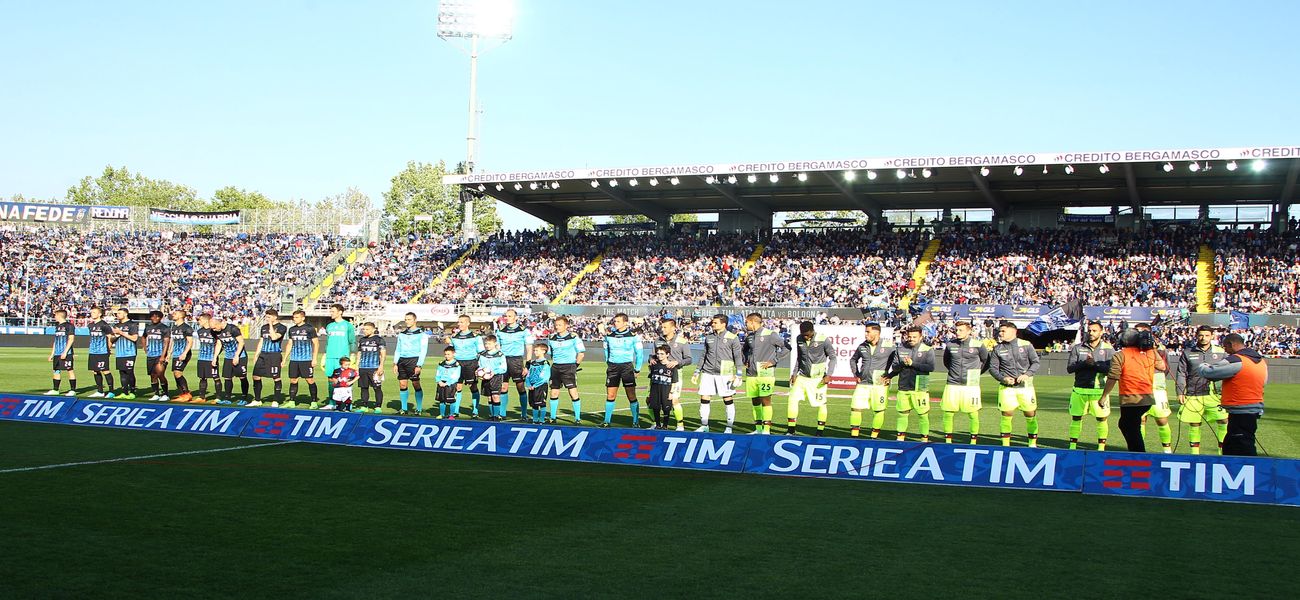A 5-1 defeat to Manchester City in late October looked to have heralded the end of Atalanta’s Champions League debut season. Following the loss in Manchester their group stage record read: played three and lost three.
Though after fighting hard for a point against City in the reverse fixture, followed by wins in Donetsk and at home to Dinamo Zagreb, Atalanta became only the second team in the tournament’s history to progress to the knock-out stage having lost their first three group games (Newcastle United were the first in the 2002-03 season).
La Dea (The Goddess), as they are known by supporters, are one of two teams left in the competition not to be included in the top 30 of the Deloitte Football Money League (DFML) — a table recording the revenues of the game’s biggest clubs. Though unlike RB Leipzig, the other remaining team outside of the DFML top 30, Atalanta are not so fortunate as to be bankrolled by a conglomerate worth billions of pounds (Red Bull GmbH).
Wednesday night’s historic round of sixteen first-leg was another chapter in what has been quite a sensational story in Italian and indeed European football. In a game befitting the occasion, the minnows from Bergamo added Valencia to a growing list of teams to have been on the receiving end of the Nerazzurri’s (The Black and Blues) relentless attacking play.
The 4-1 victory means manager Gian Piero Gasperini’s men are strong favourites to make it to the quarter-finals for the first time in the club’s history.
The offensive 3-4-3 formation used by Gasperini has been a mainstay of his managerial career and, against the backdrop of limited financial clout, he’s achieved much with it in the three and a half terms at the Gewiss Stadium.
Most notably, the former Genoa and Internazionale manager took Atalanta to their highest ever Serie A finish of 3rd last season — their third consecutive finish in the European qualification spots in the league. La Dea also reached the final of the Coppa Italia where Lazio denied them the chance of adding to their tally of major honours — a solitary Coppa Italia win in 1963.
Much like Atalanta’s recent seasons, the night itself brought surprises of its own with a rare Hans Hateboer goal getting things underway. The Dutch right wing-back opened his account for the season after converting an Alejandro Gomez cross fifteen minutes in and in the process became the fifteenth different scorer for Atalanta in all competitions this term. Top scorer Josip Iličić and Swiss midfielder Remo Feuler both found the net from long range either side of half time meaning that when Hateboer bagged his second on the hour, the tie looked as good as dead.
The game marked the sixth occasion where Atalanta have scored four or more goals in a single match this season, having previously put seven past both Torino and Udinese whilst recording back-to-back 5-0 victories against AC Milan and Parma mid-way through the season.
Undoubtedly Serie A’s most entertaining team, they are the division’s top goalscorers with 63 goals in 24 games, a record only bettered by Manchester City and Bayern Munich across Europe’s top five divisions. League leaders Juventus have only managed 46 in that time.
Yet, the 4-1 scoreline may flatter to deceive as Valencia should probably be taking more than just the one away goal, scored by Denis Chereyshev, back to the Mestailla. Poor finishing on Valencia’s part gives Atalanta considerable breathing space going to the second-leg, but the tie is by no means over.
Whether the tournament debutants have the wherewithal to see out a knock-out tie remains to be seen and their high pressing football might be their undoing, as shown in that 5-1 hammering at the Etihad last autumn.
Nonetheless its difficult to imagine that they won’t at least equal Valencia’s solitary away goal, having only drawn blanks in three games in all competitions this season.
Meanwhile, defeat in Italy means that, remarkably, Valencia are still yet to register an away win in the knock-out stages of the competition despite making consecutive finals in the 1999-00 and 2000-01 seasons.
Gasperini will be all too aware of his team’s defensive vulnerabilities and, post-match, he warned an ebullient crowd of journalists that ‘There’s still a second-leg!’, as they were keen to congratulate him for his team’s performance. He may have a tougher task calming the 40,000 fans that watched at San Siro though, where Atalanta are playing their European home matches due to the redevelopment of their 21,000 seater stadium.

It is quite phenomenal that the majority of the 40,000 crowd made the trip from Bergamo, a city 50km from Milan and one which itself is only home to 120,000 people. Despite the far bigger names of AC Milan and Internazionale playing in relatively close proximity, Atalanta’s following in the city is absolute.
So much so that one’s support for the team cannot be divorced from one’s status as a Bergamasco (from Bergamo), with connection between La Dea and the Bergamaschi representing a rare example of a top-tier club that is deeply rooted in its local community. It is a relationship that is nurtured from birth with all newborn children in local hospitals receiving an official team shirt delivered by the club with a signed message from the club president, Antonio Percassi.
In a period where the giants of AC Milan and Internazionale, amongst other traditionally dominant Italian clubs, have struggled to keep pace with Europe’s elites, it is now the team with Serie A’s eight smallest wage bill (£35m per year) that are poised to make it to the final eight of Europe’s
most prestigious footballing competition.
And while the biggest European clubs continue to compete for international appeal through corporate marketing strategies, its is Atalanta’s actions on the pitch that are earning the club some much deserved recognition.
Image Credit- The Stadium Business

